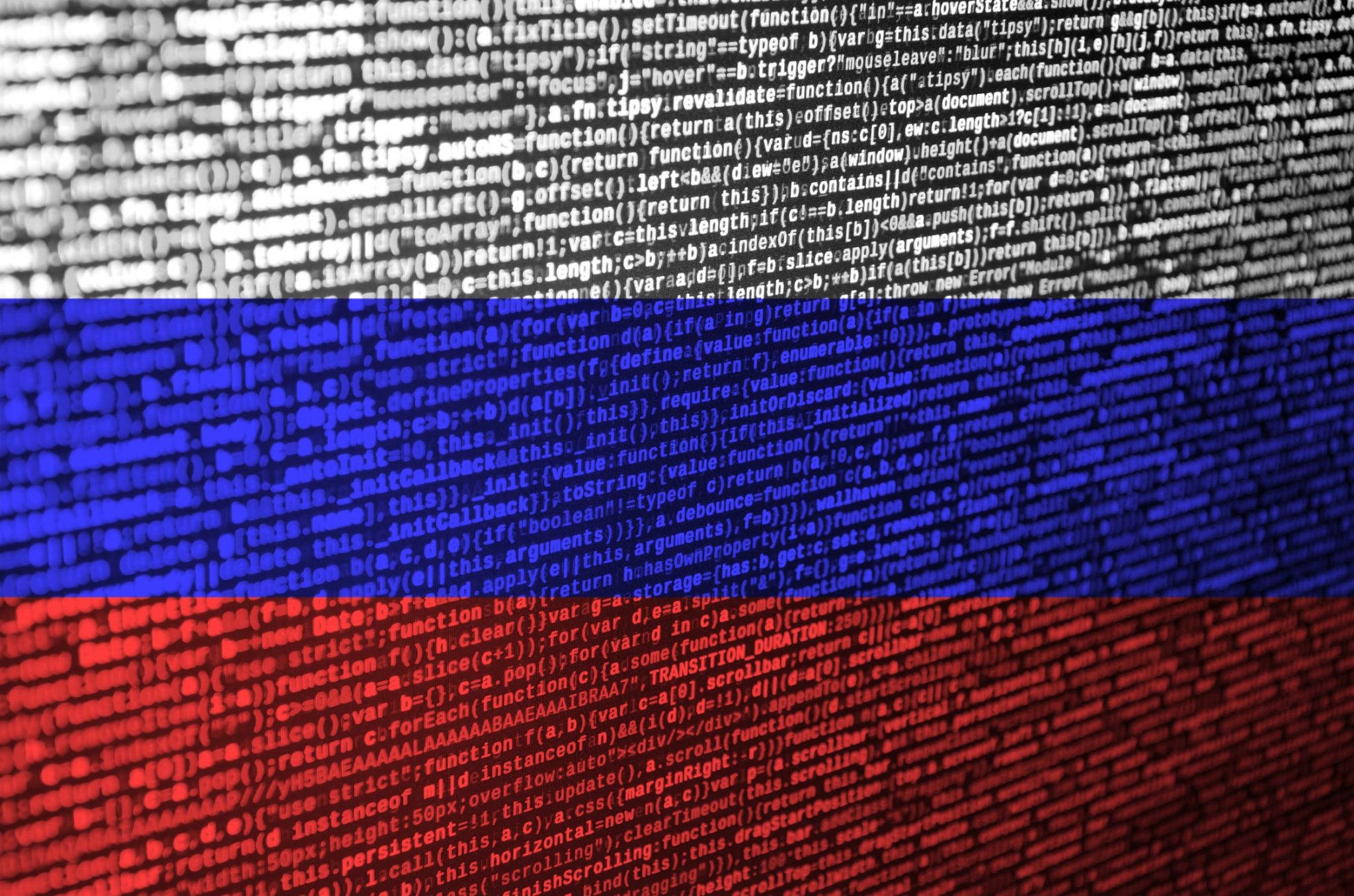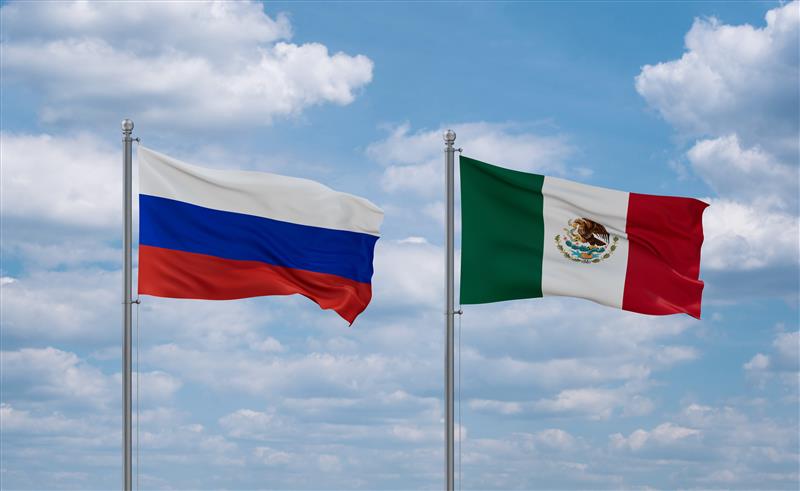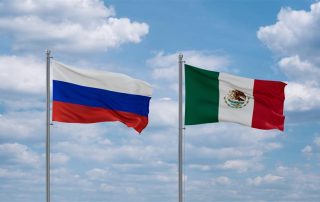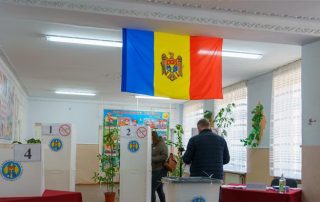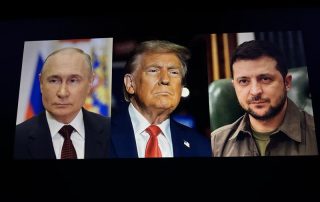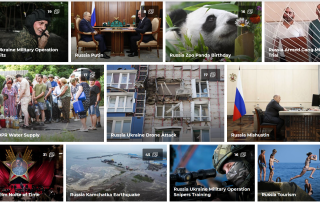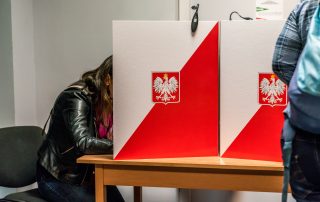Russia has long been waging operations against democracies using all of the asymmetric tools ASD tracks—information manipulation, cyberattacks, malign finance, civil society subversion, and state economic coercion. The Kremlin’s geographic scope in conducting operations to undermine democracy continues to expand and its tactics continue to evolve. Find ASD’s work on Russia’s attempts to interfere in democracies on this page.
Borrowed “Voces”: How a Mexican Journalism Club Became a Mouthpiece for Russia and Cuba
Ten months after Russia’s 2022 full-scale invasion of Ukraine, the Club de Periodistas de México (The Club of Journalists of Mexico) bestowed awards upon three journalists from RT, a Russian state-owned media outlet, for their international coverage [...]
Rising and Falling Tides: How Russia Has Benefited from Cuts to US Government-Funded Media in Moldova
Moldovans return to the polls on Sunday to vote for their parliamentary representatives in an election whose outcome could determine whether the country continues its path towards EU membership or pivots back toward closer relations with Moscow. Giv [...]
Shifting the Blame: How Russia is Preparing for a Peace-Negotiations Stalemate
Though Russian news media celebrated an "upcoming victory" after the US-Russian summit in Anchorage, Alaska, state-backed media and Russian officials laid the informational groundwork to shift blame to Ukraine and Europe if negotiations stall, go in [...]
Putin “Still Calling the Shots” After Trump-Zelenskyy Meeting, David Salvo Writes
As details of the US administration’s position became clearer following the August 15 summit in Alaska, it became evident that—as feared—the face-to-face meeting with US President Donald Trump gave Russian President Vladimir Putin the advantage. Put [...]
Cross-Border Communication: How Russian State Media Sends Mixed Signals on Trump’s Border Policies in English and Spanish
Since his first day returning to office, US President Donald Trump has pushed forward on campaign promises to crack down on illegal immigration and secure the southern US border. Trump’s tough stance on immigration has been contentious among America [...]
Who’s Reusing Russian State Media’s Images?
Introduction Threat actors increasingly operate across national boundaries, but information-operation detection rarely extends beyond single-language analysis, leaving blind spots in multilingual and visual domains. This focus on textual narratives [...]
Caught in the Spider’s Web: Military Bloggers Revealed Gaps in Russia’s Military and Information Defense
Ukraine’s recent “Spider’s Web” operation surprised the Kremlin and sent shockwaves from targeted military airfields to destinations far away from the frontline. Even though the final number of destroyed and damaged military planes decreased by half [...]
Catch Me If EU Can: How RT and Sputnik Evade EU Content Bans
That Russian state media outlets have developed varied ways to circumvent EU sanctions to continue reaching audiences in Europe is well documented. The methods often include the use of mirror sites, or identical copies of Russian state media website [...]
Taming the Rising Lion: Alignment of Iranian, Russian, and Chinese Narratives on the Israel-Iran Conflict
Dubbing it “Operation Rising Lion”, Israel has launched widespread airstrikes across Iran, hitting key nuclear facilities and killing several military commanders and intensifying decades of hostilities between Tehran and Tel Aviv. Given Iran’s long- [...]
Russia’s Messages in English and Spanish Differ on Los Angeles Protests, Krystyna Sikora and Peter Benzoni Tell Factchequeado (in Spanish)
ASD researchers Krystyna Sikora and Peter Benzoni told Factchequeado how Russian messaging differed depending on whether the Kremlin wrote in English or Spanish in response to protests in Los Angeles, California about US President Donald Trump's imm [...]
New Proxy, Same as the Old Proxy: Key Sites of Russia’s Covert Influence in Poland
Poland was one of the first countries to take steps to curb Russian propaganda in response to Russia’s full-scale invasion of Ukraine. Days after the invasion, Poland’s broadcasting regulator banned five Russian outlets—including RT and Sputnik—on c [...]
Italy Remains on Russia’s Radar
In March, Russian political philosopher Aleksandr Dugin, sometimes credited as a source of inspiration behind the Kremlin, spoke to the Italian newspaper Il Fatto Quotidiano. He predicted an interesting development in Italian politics: Prime Ministe [...]

